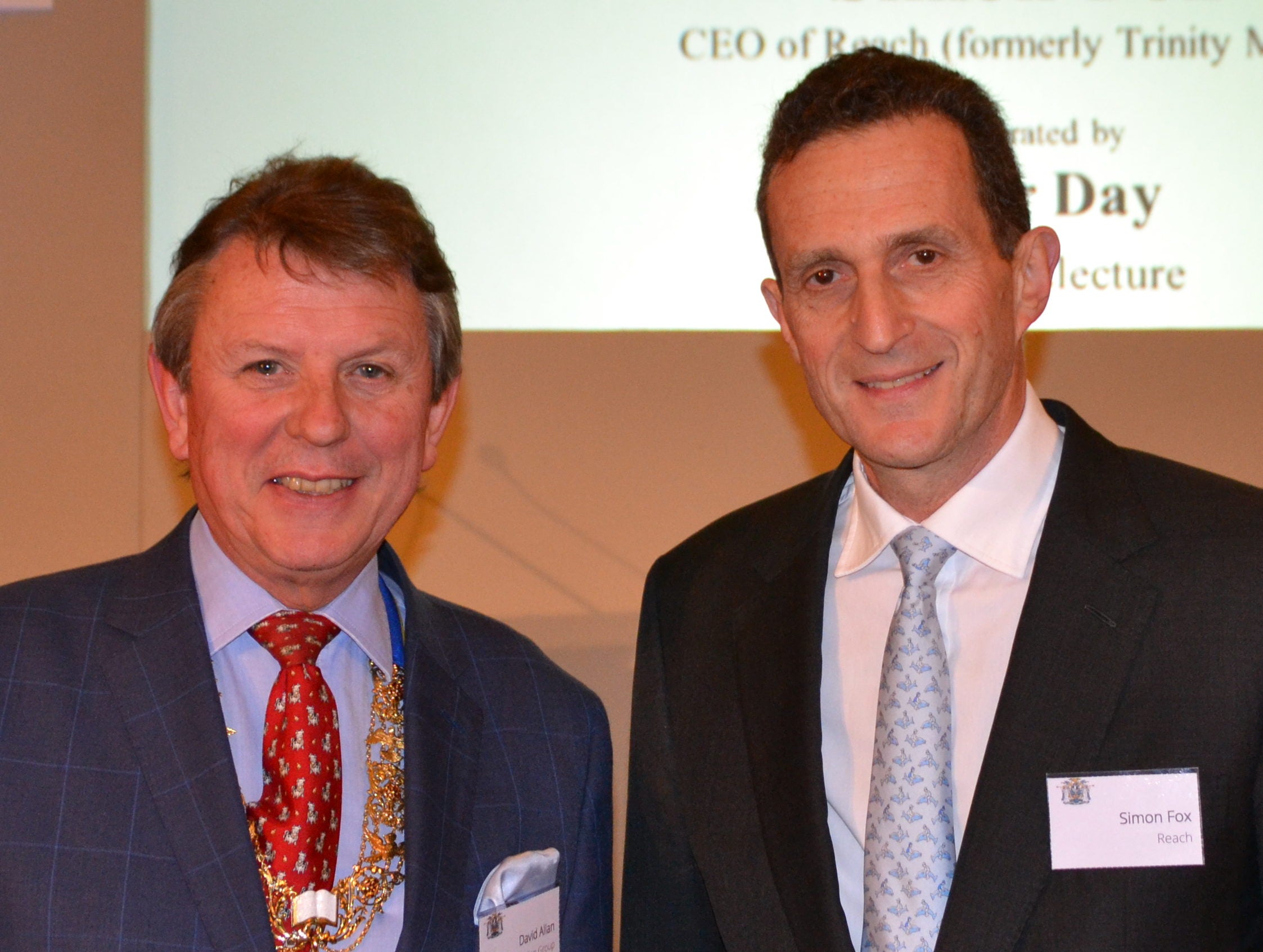
The boss of the UK’s largest newspaper publisher has likened the impact on the news industry of the BBC’s move into publishing free online news content to that of internet piracy on the music industry.
Simon Fox, chief executive of Reach (formerly Trinity Mirror), which publishes the Mirror, Express and Star news titles, said he was happy the Cairncross Review into the future of the press had called for Ofcom to assess the BBC’s online news coverage.
“Building a profitable digital news business is not wholly straightforward,” said Fox (pictured, right). “Perhaps, the main challenge is that people expect their online news to be available for free.
“In the early years of digital, music piracy was a massive issue for the music labels, with services like Napster, Limewire, Pirate Bay and others enabling users to exchange music files for free and without any regard for copyright laws.
“It took a while for the music industry to get hold of internet piracy, but they did, thus enabling services like Spotify and iTunes to prosper.
“In news, it wasn’t piracy but rather the BBC, which expanded rapidly into publishing written news stories online and for free, thereby making it impossible for all but the most niche news publications to build a digital paid-for subscription business.”
Fox made the comments while delivering the Stationers’ Annual Lecture at Stationers’ Hall in central London on Monday, titled The Power of Print.
The former HMV and Waterstones chief executive said last year Reach attracted more than £100m of digital advertising to its news sites – “that’s £100m we didn’t have a few years ago”.
He said that where the likes of Spotify, Uber and Airbnb had “overthrown” traditional players in their industries, in news “the big digital newsbrands are, I’m pleased to say, the same big traditional offline news brands”.
“The new entrants like Vice, Buzzfeed, Huffington Post have struggled to make an impact. Indeed in 2018, Vox Media, Vice and BuzzFeed all cut jobs.”
Reach publishes more than 100 newsbrands, including seven national newspapers titles, and prints more than 4m newspapers every day. Fox said that although the company was transforming to a digital-led business “print remains vital to our current economics”.
He said, however, that it was important that the news industry was successful in transitioning to digital and said professional journalism was “more vital than ever” following the “explosion” of so-called fake news.
“There’s always been exaggeration, or propaganda, or genuine mistakes, but over the last couple of years we have seen the conflation of politicians, social media and troll farms coming together to move the fake news problem from mild irritant to major threat to democracy,” he said.
“In the coming months the spread of false and misleading information is likely to undermine democracies around the world with polarising elections in India, Indonesia and Europe coming up.”
Fox went on: “In the war against fake news, our most powerful weapon is truth, but we can only deliver it from strong and secure foundations. And I believe the digital future for our industry will provide those foundations.
“Digital revenue is a fast-growing pie and we will get an ever larger share of it. And print too remains an important part of our future. Its ability to drive revenue may be diminishing, but it still retains enormous power and influence for both readers and for advertisers.
“Just like Mark Twain, reports of its death have been grossly exaggerated.
“The biggest national stories in today’s news agenda still originate in print. When Boris Johnson wants to make an impact – which is most days really – he writes a letter or a column in the Daily Telegraph. The same is true in America with op-eds in the New York Times setting the agenda there.
“The moving front page photograph of a Syrian refugee child, Alan Kurdi, washed up on a beach in Turkey, changed public opinion, at least for a while about the refugee crisis. A change in Editor at The Daily Mail changed the tone of one of the country’s most strident voices on Brexit.
“Today’s newspaper headlines set the agenda for radio and television news and their impact is magnified on social media. And newspaper campaigns can still change the world.
“More than a century ago the Daily Mirror led the campaign for more lifeboats on ships after the deaths of the poorest onboard the Titanic. We campaigned against the Ivory Trade and seal clubbing and helped create the World Wildlife Fund.
“We campaigned relentlessly for justice for the Hillsborough victims and this year we have campaigned and achieved a change in the law on organ donation.
“Every single day the power of print is evident and I’m hugely proud of that.”
Fox said he believed the newspaper “still represents extraordinary value for money and as an industry we have undervalued and underpriced it for years”, adding: “There is something deeply satisfying about finishing a newspaper – in a way that you can never achieve online.”
He said also that advertisers “have realised that the pendulum may have swung too far towards digital advertising and needs to swing back towards traditional media such as print.
“In addition, public opinion and the legislative process is also finally catching up with some of the negative consequences of the digital world.”
Added Fox: “Print may not have the power it had in the 18th Century, but don’t write it off just yet.”
Picture: Stationers
Email pged@pressgazette.co.uk to point out mistakes, provide story tips or send in a letter for publication on our "Letters Page" blog
